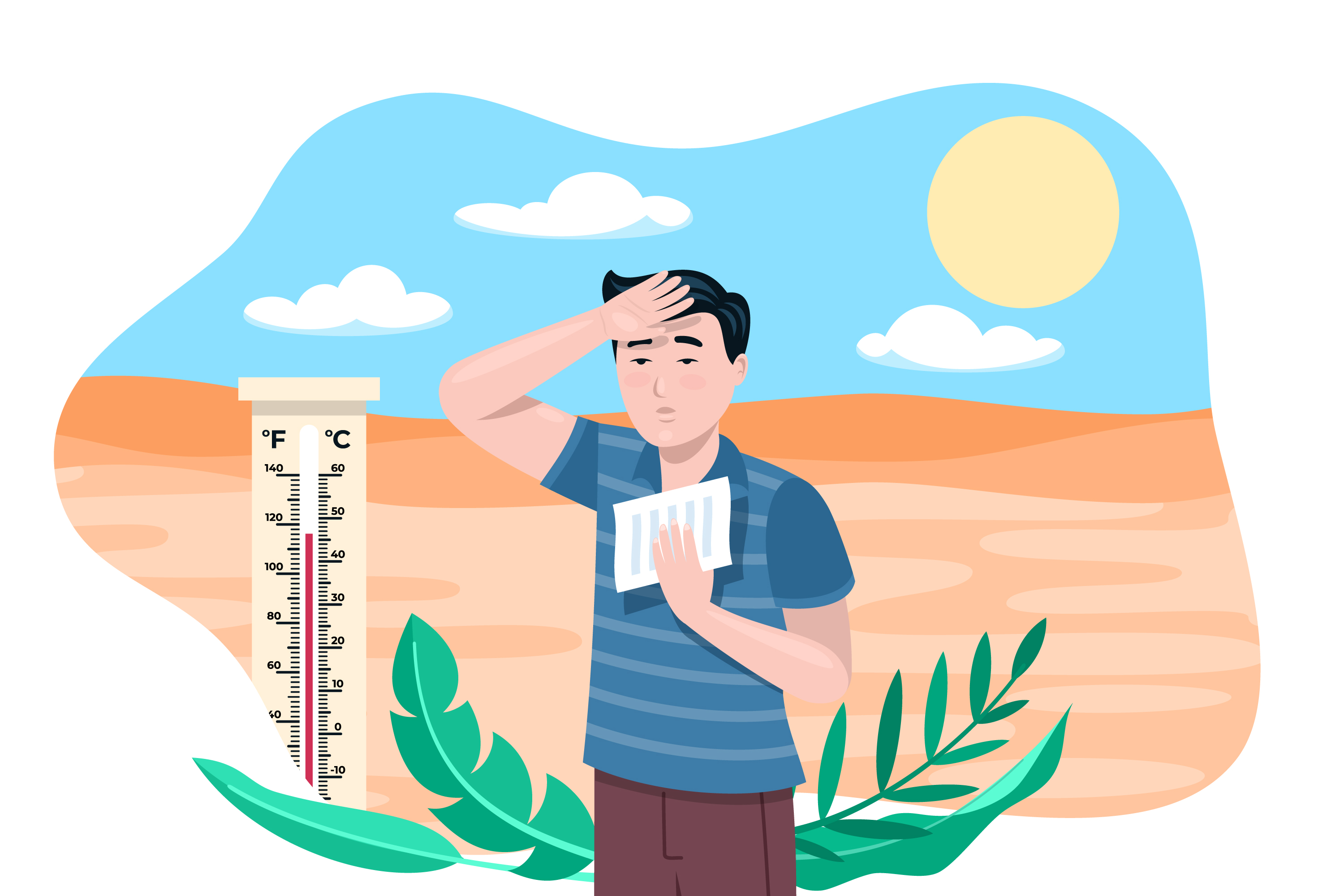7 Common Summer Problems and How to Beat Them

This year's summers have arrived early, and we should prepare for the predicted harsh summers ahead. With soaring temperatures, humidity, and harsh sun, you should be cautious about these common summer problems:
1. Dehydration
2. Heatstroke
3. Skin Rashes
4. Food Poisoning
5. Sunburn
6. Eye Irritation
7. Fungal Infections
But don’t worry—we’ve got your back. Just keep in mind some tips to avoid these 7 common summer health problems this season, and if the situation seems concerning, seek medical help at the earliest.
1. Dehydration
Excessive fluid loss in the form of sweating combined with less water intake can lead to dehydration. Your body loses essential salts while sweating, which can make you feel dizzy, tired, and cranky.
Symptoms
Headache
Dizziness
Fatigue
Dry mouth
Low blood pressure
Summer Hacks to keep Cool
Add a dash of lemon or a few mint leaves with cucumber to prepare detox water.
Coconut water and fresh fruit juices (without added sugar) are great too!
2. Heatstroke
Also known as sunstroke, it is a condition where the body temperature shoots up dangerously. Symptoms that one may experience include
Symptoms
Headache
Confusion
Red-hot skin
Blurred vision
Fainting
Rapid heartrate
Nausea
Summer Hacks to be safe
Avoid direct sun between 12 pm and 4 pm.
Wear a hat, use an umbrella, and carry a water bottle when stepping out.
3. Skin Rashes
Bacterial growth is common in warm places. Sweat, humidity, and tight clothing become a breeding ground it, causing rashes or prickly heat bumps—especially in areas like the back, neck, and underarms.
Symptoms
Burning sensation
Irritated skin
Redness
Bumps
Blisters
Summer Hacks to keep cool
Wear loose, breathable cotton clothes.
Shower twice a day and use talcum powder or cooling body sprays.
4. Food Poisoning
Summer can be brutal on your stomach, especially if you indulge in street food or leftovers. Bacteria multiply faster in heat, increasing your chances of getting food poisoning.
Symptoms
Stomach pain
Vomiting
Diarrhea
Fever
Cramps
Summer Hacks to be safe
Always wash your hands before meals
Eat fresh, home-cooked meals.
Store food properly and avoid anything that’s been sitting out too long.
5. Sunburn
Overexposure to the sun’s ultraviolet radiation can cause summer sunburns. It can you’re your skin red and inflamed.
Symptoms
Tender skin
Pain
Swelling
Peeling skin
Blisters
Summer Hacks to be safe
Use a broad-spectrum sunscreen with SPF 30 or more.
Cover your arms and legs, especially if you’re outdoors.
- Sunglasses and wide-brimmed hats are stylish and protective.
6. Eye Irritation
Eye irritation is a result of increased pollen counts, dry & dusty winds along with direct UV exposure.
Symptoms
Swelling
Watery eyes
Redness
Burning sensation
Summer Hacks to be safe
Wear UV-protected sunglasses
Avoid rubbing your eyes and rinse them gently with clean water if required.
Eye drops can help too—but consult a doctor first.
7. Fungal Infections
Humid conditions along with excessive sweating becomes the perfect playground for fungi. Areas like feet, underarms, and groin are especially prone to fungal growth.
Symptoms
Blisters
White patches
Soreness in affected areas
Change in skin texture
Summer Hacks to be safe
Keep yourself dry.
Change sweaty clothes quickly.
Use antifungal powder if needed.
Don’t share towels or clothes—because fungus loves to mingle.
Final Splash of Advice:
Summer doesn’t have to be a season of suffering. With a little care and some smart choices, you can stay healthy and enjoy the best of sunny days. Hydrate well, dress smart, and don’t forget your sunscreen. Here’s to a cool, happy, and healthy summer!
Disclaimer
The content of this blog is intended for informational purposes only and should not be considered a substitute for medical consultation. The preventive tips provided in this blog are based on general knowledge and public resources. They are not a substitute for professional medical advice. If you're experiencing severe or ongoing symptoms, please consult a doctor.


